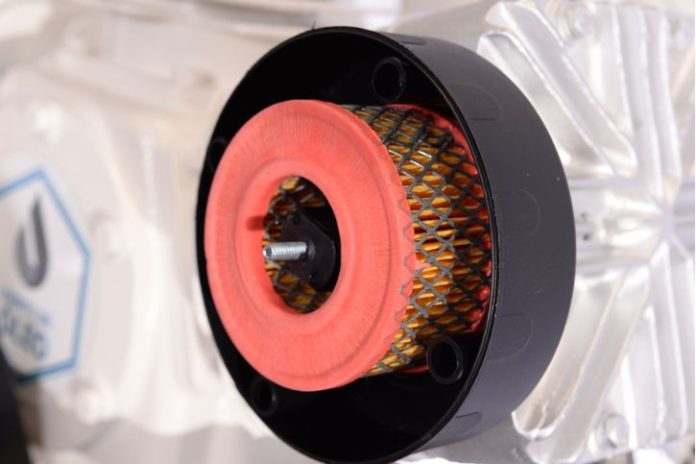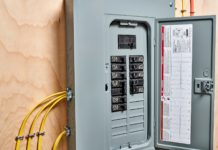Compressors play a vital role in numerous residential and industrial settings. An important feature of these compressors is the filter. The right filtration system is important for optimal performance of the compressor. To elaborate further, this post will focus on the importance of compressed air filtration, some key factors to consider before selecting a filter, and the types of compressor filters available.
Why Do You Need Compressed Air Filtration?
There are two main reasons for air filtration in a compressor:
-
Sources Of Air Contamination
Air contamination is a major issue that lowers the performance and lifespan of the compressor if left unchecked. Some common culprits include particulates at the intake such as dust and debris. In an industrial setting, it can be dust and fumes from various production processes that can adversely affect the compressor’s performance.
In some cases, outside contaminants can also find their way into the compressor, such as pollen during the warmer months and leaf dust during autumn. Lastly, there can be other unavoidable contaminants such as moisture buildup, or the presence of oil in a rotary screw compressor. Thus, filtration is important to tackle the myriad of pollutants and contaminants.
-
Problems Caused by Compressed Air Contamination
Here are just some of the potential problems caused by a compromised air compressor:
– The particulates can cause abrasion, corrosion, blockage or other forms of damage within the compressor.
– At the very least, it can significantly reduce the performance and efficiency of the air compressor, driving up downtime and increasing energy costs.
– Compressors used in an industrial setting can cause product contamination without proper filtration.
– Compressed air containing particulates, moisture or oil is also harmful to workers and technicians in an industrial setting.
Therefore, it is critical to install a robust filter to prevent such problems, such as stainless steel mesh. Known for its toughness and efficiency, it can be customized to filter out certain particulates while also offering easy maintenance and corrosion resistance.
Factors To Consider When Choosing An Air Compressor Filter
-
Air Quality Standards
It is necessary to determine the quality of compressed air before selecting an appropriate air compressor filter. For instance, compressed air used for pneumatic applications can handle some minor levels of contamination. However, air used in the medical or food processing industry has to be of the highest quality. Keeping this in mind, here are some standard air quality guidelines:
– For pneumatic applications, an air filter can have a filtration efficiency of 0.3 to 0.1 microns
– For paint lining and other similar applications, the filtration efficiency needs to be around 0.1 microns
– For pharmaceutical and food processing purposes, the filtration efficiency strictly needs to be around 0.01 microns.
-
Type Of Compressor
Apart from air quality, the type of compressor is also a key requirement for filter selection, as the filter should be compatible with the machine. This is true not just in terms of size, but in terms of operation as well. For instance, the filter used in an oil-free compressor and oil-flooded compressor is vastly different. Since an oil-free compressor doesn’t use oil, it isn’t necessary to have a coalescing filter. Moreover, it can be combined with activated carbon filters to achieve a high degree of air purity.
Similarly, in the case of an oil-flooded compressor, applying a coalescing filter is critical. With the right systems in place, the compressor’s operation can be optimized.
-
Operating Environment
Although the primary function of air filters is to remove contaminants from the intake air, the nature of the contaminants can affect the selection of the filter. For example, if the operating environment has a high degree of moisture, then the air filter might require additional assistance in the form of dryers or separators.
Similarly, the presence of more dust particles and other airborne particulates might necessitate the addition of pre-filters to improve the lifespan of the compressed air filters. At the very least, it would require frequent changes in air filters if special implements like pre-filters are not used.
-
Frequency Of Use
Lastly, the intensity of operation or the frequency of use will determine the selection of air filters. In a setting where a high degree of compressed air is required on a continuous basis, a more robust air filter will be suitable. It would also be prudent to choose a filter with more capacity. Of course, in order to reduce the load on the compressed air filters, some accessories such as automatic drains can be added to the system to reduce maintenance of the filters. In contrast, in facilities that require less intensive air filtration at a lower frequency, more economical options can be considered.
Types Of Air Compressor Filters
Based on the factors stated above, here are 4 common types of air filters one can find compatible with most air compressors:
-
Dry Particulate Filters
As the name suggests, these filters majorly handle dry contaminants in the airstream. They can be installed either at the inlet or inline, that is within the compressor. Dry particulate filters majorly perform using three processes: interception, inertial impact and diffusion. The large particles are intercepted at the filter’s surface. The smaller particles, on the other hand, travel through the filter medium and are intercepted at various points due to diffusion. While these mediums stop the dry particulates, what keeps them trapped in the filter medium? This is mainly done through electrostatic attraction. Lastly, there are specialized versions, such as hydro excavation filters, which can be used for more intensive applications.
-
Coalescing Inline Filters
These filters are installed inside the compressor system and mainly work on moisture, oil and aerosol. The functioning of the filter is quite simple; the oil or water droplets accumulate on the surface of the filter medium. Over time these droplets combine or coalesce to form larger droplets which then fall down into a tray placed at the bottom of the filter. In this way, these aerosol droplets can be regularly drained and filtered. An added benefit of coalescing inline filters is that they also trap dry particulates along with the droplets, offering a high-quality filtration solution. Moreover, they can operate alone or can be combined with other filters for better results.
-
Adsorption Filters
For removing gaseous contaminants like vapours, fumes, smoke and odours, adsorption filters are the ideal choice. They mainly use activated carbon as their primary filter medium. This material has tiny pores or holes on its surface which successfully trap the gaseous molecules. This process is known as adsorption and these filters have extremely high quality and are mainly used in applications requiring extremely clean, filtered air. However, these compressed air filters are best supplemented by dry particulate filters or a coalescing filter to remove the larger particles of dust and debris as well as oil and water droplets before running the air through them.
-
Air Compressor Oil Filters
These filters are quite different from the other three mentioned above as they are mainly used to remove contaminants from oil. This clean oil is then used to lubricate compressors such as rotary screw air compressors. The main purpose of air compressor oil filters is to reduce the wear and tear of bearings in the machine, which can be adversely affected due to contaminants. This type of filter also has two distinct features which differentiate it from others:
– A bypass valve to supply oil to the compressor if the filter is clogged as not having any oil for lubrication is far worse than contaminated oil.
– A high-pressure resistant housing and seals to withstand pressure fluctuations caused by the compressor.
Conclusion
In closing, air compressor filters are absolutely critical for any compressor. Its selection can be largely determined by adhering to a few key factors such as air quality, compressor type, frequency of use and operating conditions. Lastly, the four different types of filters stated above broadly cover most filtration applications in almost all compressors. Of course, the list is not exhaustive by any means, but is a solid foundation to conduct further research on optimizing air compressor filtration.



















